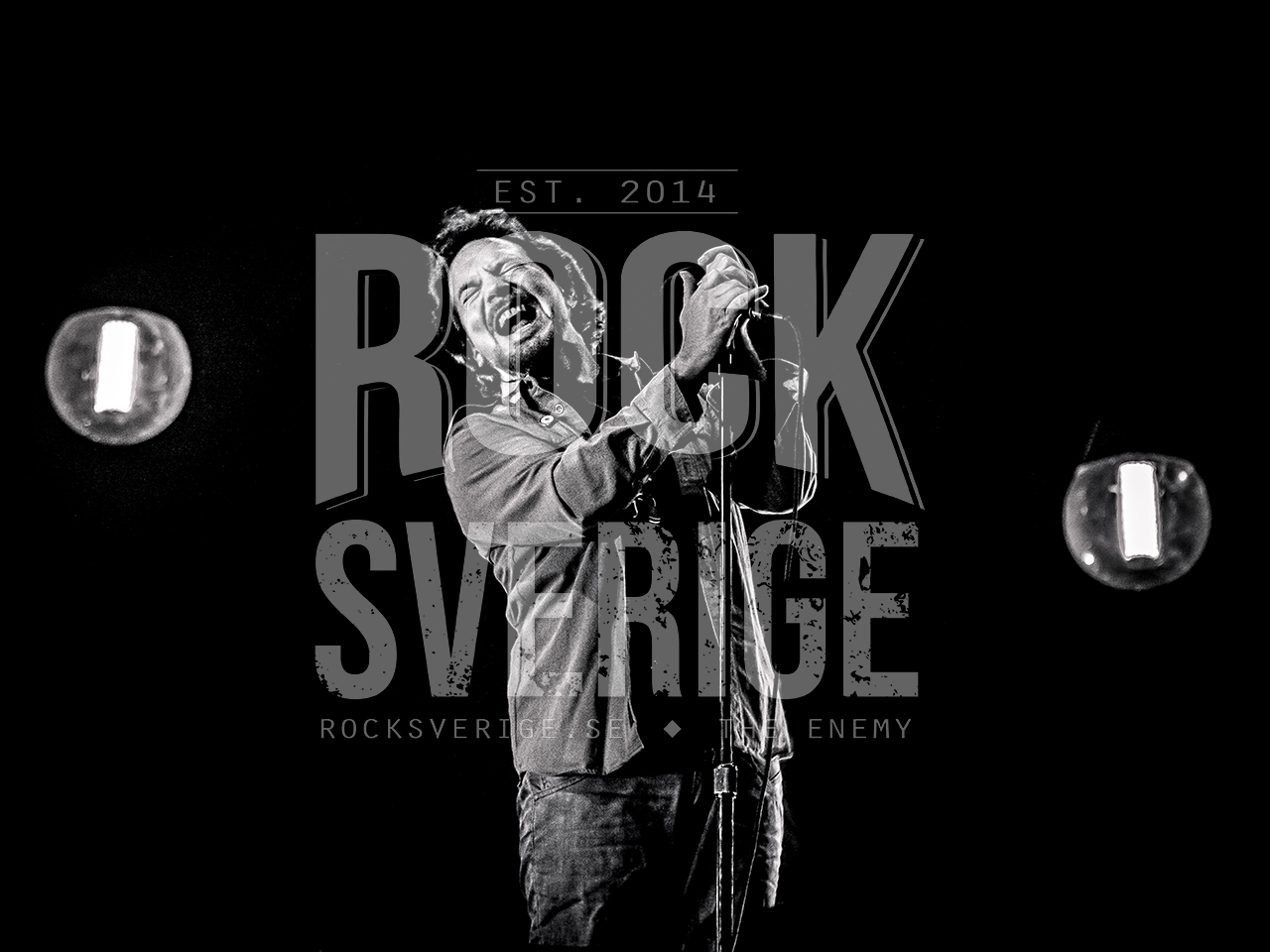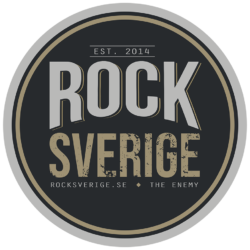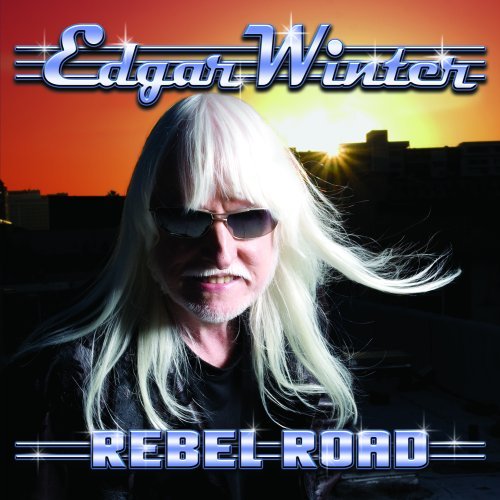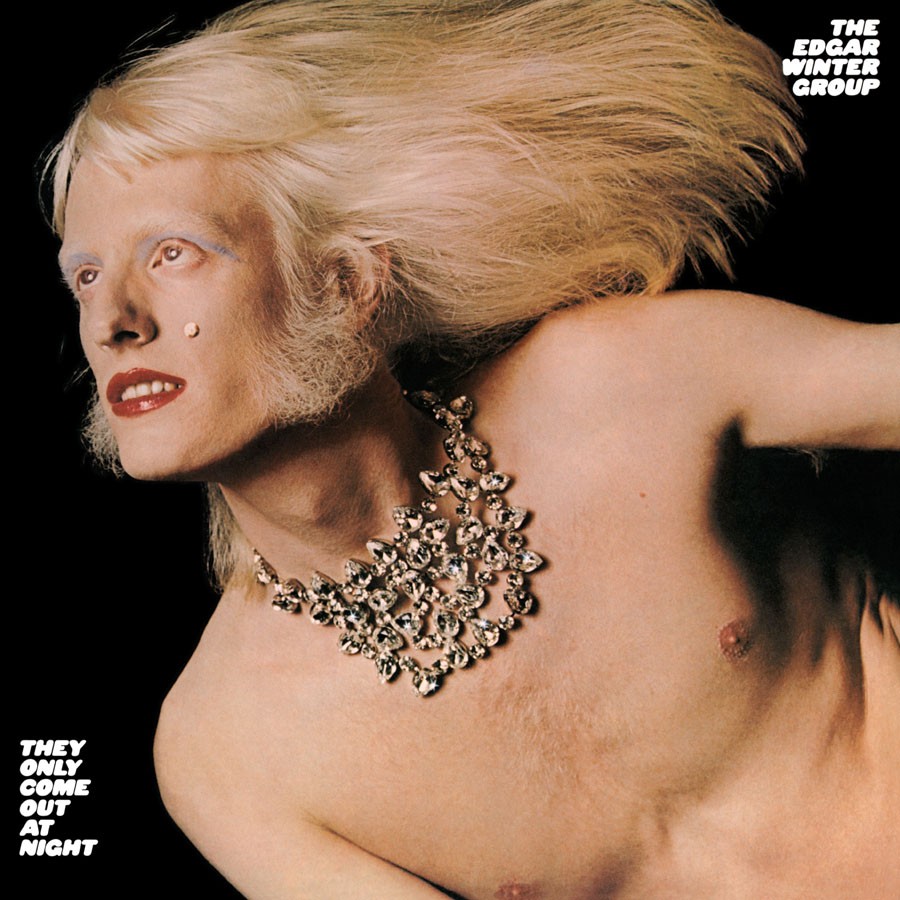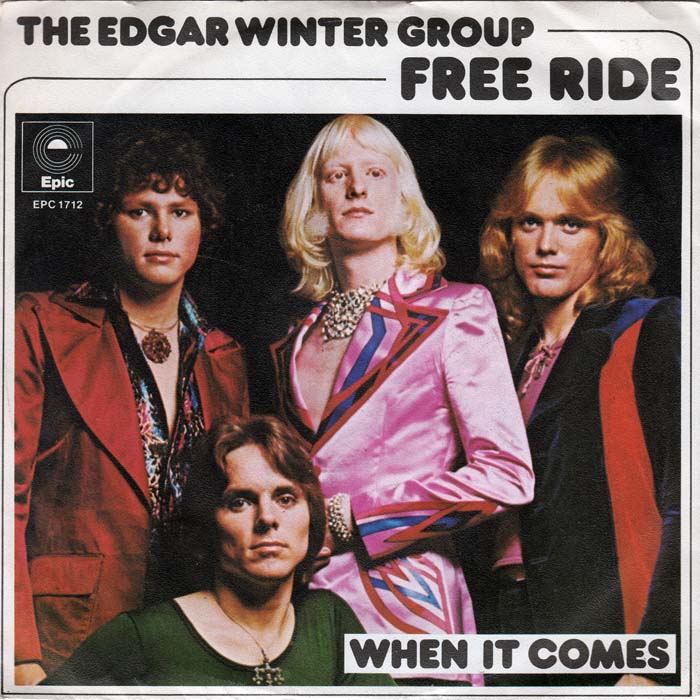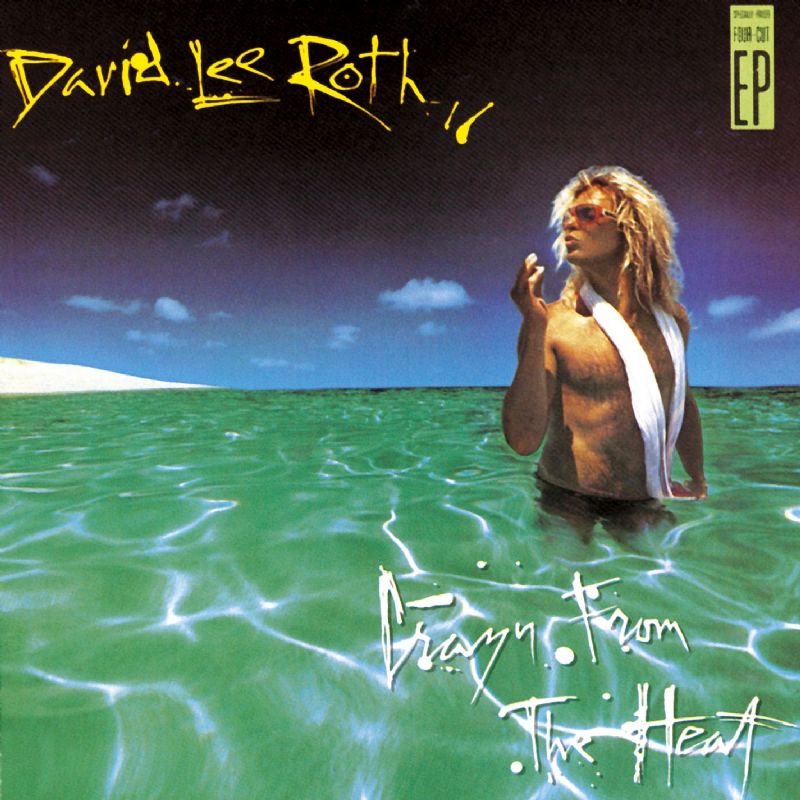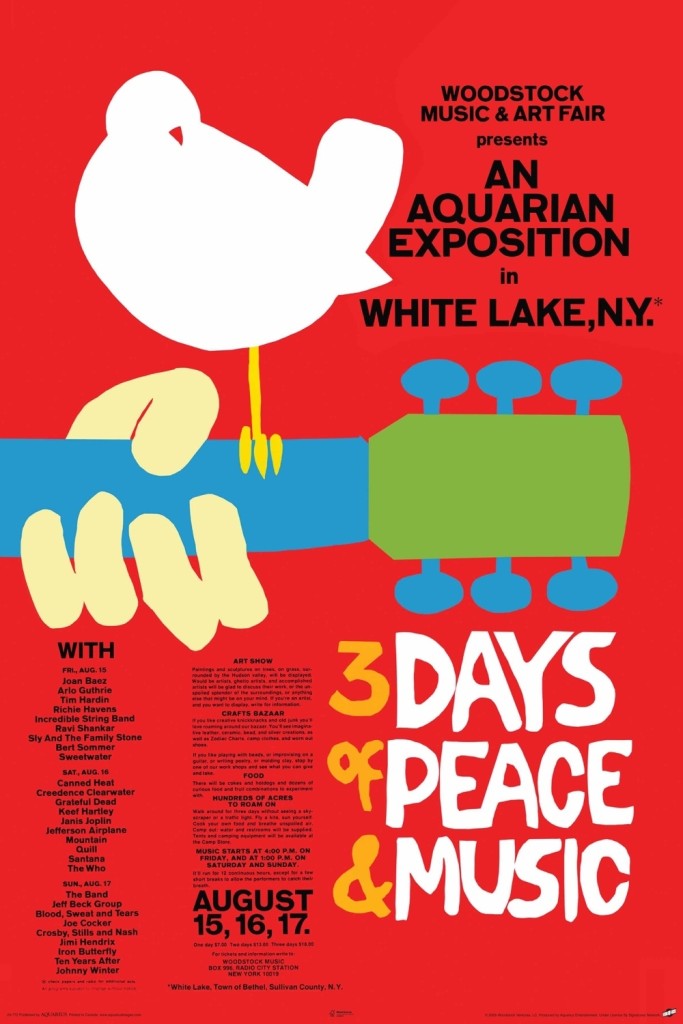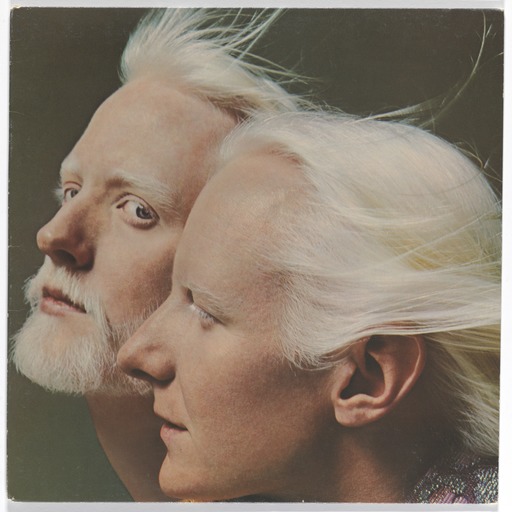Edgar Winter fyller 70 nästa år, men står fortfarande på scen och ger järnet. Han är lillebror till legendariske Johnny Winter och spelar en hel del av brorsans låtar live. Idag, 15 november, spelar han i Stockholm och imorgon gästar han Göteborg. Nu tänker ni kanske att herr Winter inte direkt är hårdrock, vilket är sant, men han har spelat med bl a Ronnie Montrose och David Lee Roth och detta passade vi givetvis på att snacka om när vi ringde upp Edgar en sen kväll i Beverly Hills. Det bjuds på musikhistoria och minnen, som exempelvis spelningen på Woodstock:
“When we walked on that stage it was a transformative moment, looking out at this endless sea of humanity and seeing all these people united in this unique way. When I grew up as a kid, I never had any particular desire to be famous, I just loved music. I´d stand endless hours playing music by myself and it was my own private escape world. When we played Woodtsock it just made me realize that music really had the power to reach out and bring people together and transcend boundaries. That was when I decided that I wanted to start writing. I never thought of music in the same way after that.”
You grew up in Beaumont, Texas. What was that like?
Edgar: It´s a small city and Spindletop is right near there, the first oil well that was drilled in Texas. There´s really not much going on there, but I didn´t appreciate what an amazing area that was musically and I´ll explain a little about that. It´s right on the border of Louisiana and in Louisiana the liquor laws were 18 as opposed to 21 in Texas. There were a whole multitude of clubs and there was like a bridge that went across the river and all the high school kids went to the clubs to have fun and drink. I probably played more in Louisiana that I did in Texas, but the New Orleans French style of music spread across the border to Texas. We called it swamp music back then. It´s also close to Mexico, so there were hot Latin players and there were real cowboys so there was real country music and authentic old blues guys. There was a radio station where the DJ, his name was Clarence Garlow (1911-1986), had had a hit song and he´d play a few records and then pick up his guitar and play live. My brother Johnny (1944-2014) used to go over there and sit in with Clarence and jam on the radio. And in north Texas there was a great jazz school, so there was a whole infusion of more intellectual jazz players as well. It was really an interesting place and when I left right out of high school and moved to New York, I was sort of intimidated and thought the best musicians in the world were in New York and there is a lot of wonderful music there, but nothing that is really identifiable as a New York sound. When I put together my first band, I went all over the world looking for musicians and ended up going right back home and putting together a band with guys I used to play with in high school. It just had a unique flavor and a unique feel. The music there was handed down from generation to generation. My dad played guitar and banjo and played the alto sax in a swing band. He also had a barber shop quartet and sang in the choir and my mother played beautiful classical piano, but my dad showed Johnny and me our first chords on ukulele. We started out as little kids when I was 4 years old. Johnny graduated to guitar and it became apparent that he was gonna be the guitar player, so I thought I´d play everything else. I played bass for a while and I played drums. Then I played electric piano and in high school I got really interested in all of the horns. I got my father´s old alto sax out of the attic and learned to play that. I really fell in love with jazz like Charlie Parker, Coltrane and Miles, all the jazz guys. The thing that I always remember about Beaumont and Texas in general, is what a unique area it was musically. I was completely oblivious to that. I was just growing up and I thought everybody played music because our whole family was musical and it was like a family past time and then when we got old enough to start forming bands with our friends around the neighborhood, we said “What? Your dad didn´t show you no chords?” We thought everybody did, the same way they learned to read and write. We then realized, “Oh, it´s a special thing.” There you go.
How did Ronnie Montrose (1947-2012) end up in the Edgar Winter Group?
Edgar: I had heard Ronnie with Van Morrison and Boz Scaggs. Actually, when I put together the Edgar Winter Group there was this massive talent search and we had like thousands of letters and tapes from people all over the world. Just a massive amount of stuff when we went to the office. I would sit down and listen to 10-15 a night and the first discovery was Dan Hartman, who more or less cofounded the band. When I heard his tape I just said “This guy is fantastic. He´s a great singer and a great writer.” At that point we started looking for the perfect guitar player and what I liked about Ronnie was… Dan had sort of a youthful innocence and he loved pop music and Ronnie had like a real kind of an edge. An unpredictability and that was a good contrast and chemistry. After we got Ronnie we didn´t have a drummer for a while and we were using two or three different guys. Then finally we got Chuck Ruff (1951-2011), who was a friend of Ronnie´s and they had played in a band together (Sawbuck) , and when I heard Chuck, he just fit perfectly. Very positive, always smiling and loved to play. That was the birth of the band and Ronnie being the original guitarist, Rick Derringer played in the band after him, I always considered the real guy to be Ronnie. He passed away recently and it´s a great loss. He and I remained close and he lived in California as well. I played on a couple of his things and he played on some of mine. He was really fun on stage.
Did you know that he was in a bad Place (Ronnie committed suicide 2012)? I believe Sammy Hagar said that Ronnie always felt he wasn´t good enough and always looked down on himself.
Edgar: I think Sammy was a lot closer to Ronnie than I was. I never noticed any of that. To me, Ronnie was very freewheelin´and I think that´s something that either developed later or something that he didn´t reveal in that particular situation. Also, we were in a great situation at the time. As I said, there was an edge and a kind of a dark side, but it was kind of a mysterious thing that I could never put my finger on.
When the song “Free ride” (1973) came out, everything just exploded and it became a huge hit.
Edgar: Yes, “Free ride” was surprisingly the first song we released from the album and it didn´t go anywhere. It did nothing and we released three more singles and “Frankenstein” was the B-side of one of the other songs and it then started to get airplay on the underground FM college radio stations and it was just like a phenomenon. It grew and grew and then crossed over to regular pop radio and became a huge number 1 hit. It´s very unusual for an instrumental to gain such popularity and actually get to number 1. After the success of “Frankenstein”, we rereleased “Free ride” and it was a huge hit. To me that´s just a perfect example… if I had any advice to offer young people starting out, just disregard anything that anybody tells you whatever the current trends may be and what record company people may say. Just play the music that you really love and that means something to you. Follow your heart and you can´t go wrong. “Frankenstein” was a song that we weren´t even gonna put on the album. It was a killer live song, but we didn´t feel like it had anything to do with the direction of the group. I thought the strength of the group lay in the co-writing with Dan Hartman and myself. I thought “Free ride” was the song that had real potential. It just goes to show that you can´t really calculate music and second guess the audience, trying to figure out what they´re going to like. If it hadn´t been for the sheer fun of that song, which I think is what communicated, then “Free ride” would never have been a success.
That´s the difference with today. Today, if you don´t have an instant hit single, you´re history.
Edgar: Yes. There was so much more innocent enthusiasm for music and it was all about the art of music. It wasn´t so business and corporately driven. The fans weren´t really taking it that seriously. Everybody was getting high and having a great time. You´d have three or four songs and go into the studio and actually sit down and create a whole album, just jamming in the studio and coming up with ideas. Then you´d maybe go home and write the lyrics and someone would come up with the bridge and then you´d put it all together. I think that´s why that was such a magical era in music. After that, everything changed and you had to submit demos and the record company had to approve everything. When video came along, it shifted the whole emphasis from the music to the image. I remember when I used to listen to the radio, it was really magical and I had no idea what any of the artists looked liked, but when people started making videos, then that really changed the whole game. But, there´s always great music. I do believe there were two golden eras in music, the 40´s and 50´s for big bands and jazz and swing and then the 60´s and 70´s for rock. I think they are just unparallel, but that´s my personal opinion.
Years later you end up working with David Lee Roth on his “Crazy from the heat” (1985) EP. How did that come about?
Edgar: Dave wanted to do the song “Easy street” (1974) and he wanted it to be authentic, so he got in touch with me and asked if I wanted to be like the musical director and I said “Yeah, I´d love to do that.” He also had the song “Just a gigolo”, which he didn´t think anyone would ever have heard of. One of my favorite sax players was Sam Butera (1927-2009) in Louis Prima and the Witnesses and I think that was the first rock and roll band because those guys really rocked. I knew the song and I played pretty much the exact solo that was on that record. Dave and I terrorized the streets of New York and it was really a lot of fun. It was fun doing all of those songs, especially “Just a gigolo”, I got a kick out of that. But to answer your question, the whole thing was the fact that he wanted to do “Easy street”. I also remember that I had played with Michael McDonald (The Doobie Brothers, Steely Dan) and Ted Templeman (Van Halen´s producer 1978-1984) produced a lot of Michael´s stuff and produced “Crazy from the heat”, so I don´t know if that was just coincidental or if it had anything to do with it.
How would you describe David Lee Roth? He seems to be a very intelligent man.
Edgar: Yes he is and he´s exactly that person, he doesn´t turn that off and on. He´s that way 24/7. That´s really him and he´s a riot to hang out with. He´s got a lot of energy and he is very intelligent and probably more thoughtful than you might think just from the outward image. I had a lot of fun with him.
Is he a good musician? Does he have a good ear for music?
Edgar: I never heard him play any instrument. He´s mainly a singer and I think he´s one of those guys that is really a great showman and a great front man. I think he´s very calculated about his image. He was the perfect singer for Van Halen much in the same way like Robert Plant was the perfect guy for Led Zeppelin. They just have a style and a chemistry that works. I really thought Eddie (Van Halen) was a great guitarist and I really enjoyed the band and the same thing about Led Zeppelin. John Bonham was a great drummer, John Paul Jones is a great bass player and Jimmy Page is a great guitar player. The lead singer just takes it into a whole different thing. But I like Van Halen with Sammy too and the same thing with Queen and the different people that have sung with them, since Freddie Mercury passed. It´s interesting to see how much it changes when the lead singer and the front man changes.
Ten years after the EP, you end up in Las Vegas with David Lee Roth. What was that like?
Edgar: I wasn´t sure what to think of it, because it was so odd. I loved it because I like big bands. We put that together in Florida and there were a lot of hot Latin rhythm players in that band and really good musicians, excellent musicianship. He had a girl singer as well and it was an interesting show. Totally different than what I would´ve expected Dave to do, but I was glad that he invited me to do it. I really enjoy playing with other people. I like having guest on my recordings. It´s really fun to have a different influence introduced and it´s really inspiring and fun to see what happens when you collaborate with people as opposed to just play with the current band.
That Vegas show, was it the kind of music as “Just a gigolo” and “California girls”?
Edgar: He did a lot of covers and he did “Jump” and a lot of the Van Halen stuff, but it was very diverse and he had some show tunes in there. I would say that it was more adult music. It was a very entertaining show and Dave talked a lot and told a lot of jokes. It was “Vegasy”, but not in the traditional way. It was in an odd, perverse, twisted kind of way.
Back then. Las Vegas wasn´t really the place for rock and rollers, but these days a lot of bands have had residencies in Vegas, like Guns N´Roses, KISS, Journey and Mötley Crüe. He was a head of his time there.
Edgar: Yes, very much so. I feel the same way. Some of my favorite shows now are casinos, just because they are so professional and they have really nice stages and good lighting. Everything is consistently good. But I remember back in the 70´s, I wouldn´t have been caught dead in a casino. It was sort of a disgraceful thing, but when Elvis played there, it pretty much set the tone for that. If the king of rock and roll can play Vegas, you can be sure somewhere down the line, rock and roll is gonna follow that lead.
Do you have any new music coming out?
Edgar: Well, we´re rereleasing “Rebel road” (2008) specifically for the European tour, but I have two or three things that I´m working on. I have a series of books that are like science fiction/fantasy that occur in this realm called Shadowland and I have some music that is kind of like the soundtrack to that book called “Shadowdance”. It´s like semi classical with elements of blues and jazz and rock in it. I´ve got about half of that recorded and then I´ve got like a musical comedy version of Frankenstein that I´ve been working on. It´s kind of a social satire and I have all the music to that. I think the next thing I do might be an Edgar Winter Band album. I love my current band and they´re all great musicians, so I think it would really be fun to do a band album rather than just a solo album.
The books you mentioned, are they like the stuff you did based on L Ron Hubbard´s (Scientology founder) books?
Edgar: No, no connection what so ever. That was a fun project. I like that because there were a lot of different characters in those books and I got to sort of invent vocal characters when I was singing. But that was me doing somebody else´s stuff. The books that I have written are more fantasy than sci- fi and this album is not like that, in other words, it´s a standalone thing and is more like a soundtrack and it doesn´t follow the storyline of the book and it could be released separately. You don´t have to have read any of the books in order to listen to the album. I don´t think anybody´s ever done that before.
What would you say has been a highpoint in your career?
Edgar: Woodstock I would say. That would have to be the number one thing. Up to that point I sort of considered myself a serious musician. I was playing with my brother Johnny at the time and he and I grew up playing together. He invited me to New York and I met his manager Steve, who introduced me to Clive Davis , who was the president of CBS. Clive then eventually offered me my own record deal and the rest is history. At the time we did Woodstock, Johnny would do the first part of the set with his blues trio and then he said “I´m gonna bring my little brother Edgar up here!” and nobody even knew Johnny had a brother. I walked on and it was like “Whoa, there´s two of them!” We did a lot of Ray Charles songs and it was a lot of fun, but when we did Woodstock, the whole thing was set against the social backdrop of the peace movement and people were writing and singing songs they truly believed in. When we walked on that stage it was a transformative moment, looking out at this endless sea of humanity and seeing all these people united in this unique way. When I grew up as a kid, I never had any particular desire to be famous, I just loved music. I´d stand endless hours playing music by myself and it was my own private escape world. When we played Woodtsock it just made me realize that music really had the power to reach out and bring people together and transcend boundaries. That was when I decided that I wanted to start writing. I never thought of music in the same way after that. That´s what I really consider the beginning of my career. Then playing Albert Hall in London was amazing. Playing the Apollo in New York. As a kid I remember riding in the car listening to the radio and hearing James Brown (1933-2006) live from the Apollo theater and I never dreamed that I would play the Apollo. We were the second white band to ever play there. I think Buddy Holly (1936-1959) was first. To play the Apollo with a white band with the name White Trash, was a bit terrifying. We recorded of our live album there, so that was another time.
A final thing. Have you ever met Tom Cruise in Church?
Edgar: Yeah, I´ve met Tom. We´ve never had any lengthy conversation. I really haven´t been in involved in Scientology in years now. When I did the “Mission earth” album, mid 80´s… there´s a place in LA called the Celebrity Center and Tom Cruise would go there for services there and I would run into him on occasions.
Have you left Scientology?
Edgar: Well, I don´t know about left? I´ve done courses with them and projects and so forth, but I was never an avid scientologist. I´m interested in it and I love a lot of the people. There´s a lot of really cool, committed people. I respect all religions and I´m a very spiritual person. I think religion is a very personal thing and I´ve done things when they´ve had religious crusades for religious freedom and so forth. I believe in everybody´s right to practice whatever they choose. I have not severed relations with them, I just haven´t been doing anything. If something comes up in the future I may, but it´s been a while. One final thing. I´m pumped and ready to rock and I just wanna thank all the fans for following my career as well as my brother Johnny´s throughout all of these years. It´s meant the world to us. It´s still hard for me that he´s not with us anymore. He may have departed this physical plane, but his essence and his music will live on in my heart always and every time I walk on the stage I think of Johnny and I always will. He was my all time musical hero.
Text: Niclas Müller-Hansen
